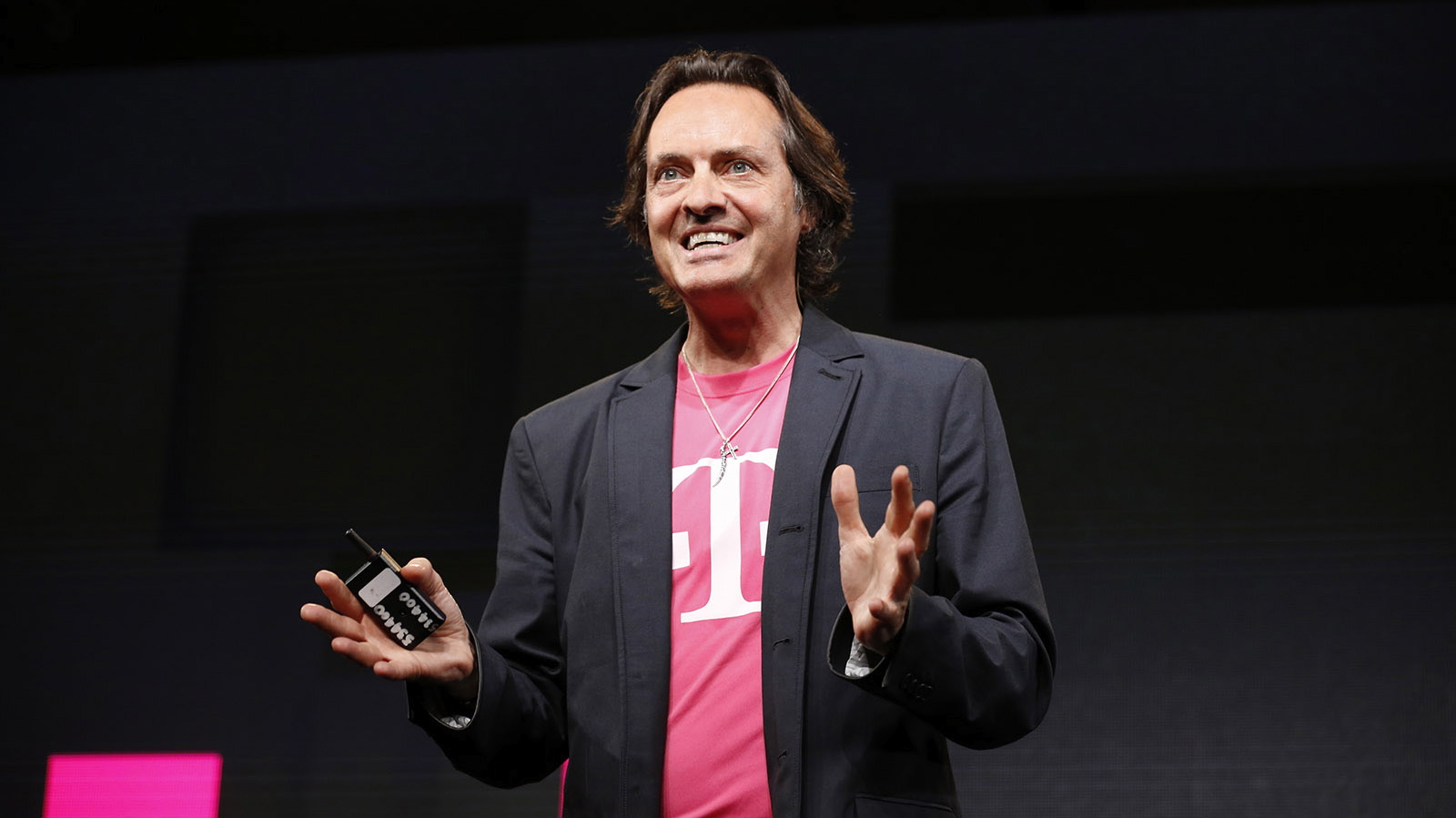Sprint said to have T-Mobile on its 2014 wish list
No. 3 plus No. 4 would still make a pretty small No. 3

Sign up for breaking news, reviews, opinion, top tech deals, and more.
You are now subscribed
Your newsletter sign-up was successful
A massive shakeup in the wireless world could be in store for 2014.
Sprint is said to be mulling a potential bid for T-Mobile, a $20 billion deal that could chop the US carrier landscape from four major players to three.
According to the Wall Street Journal, No. 3 Sprint is currently feeling out regulatory concerns and may get the bid ball rolling in the first half of next year.
If Sprint-Mo (or T-int?) becomes a thing, the companies would have almost 53 million combined post-paid subscribers - the industry's most valuable customers. That number is still far behind Verizon's 95 million contracted souls and AT&T's 72 million.
Pros and calls
While a merger would certainly help Sprint and No. 4 T-Mobile take on Verizon and AT&T, the concern for consumers would be a dwindling of choice.
Competition drives down prices and gives us options like T-Mobile's Simple Choice plans, which have done away with contracts, and Sprint's unlimited data. There's no telling how a merger would change the carriers' services, but it could spell bad news for consumers.
T-Mobile parent company Deutsche Telekom is reportedly interested in getting out of the US market, while Sprint majority owner SoftBank is led by an acquisition-hungry CEO. Execs from both companies have publicly argued a merger is needed to compete with Big Red and Ma Bell.
Sign up for breaking news, reviews, opinion, top tech deals, and more.
Even if Sprint makes an offer, antitrust officials would have to sign off. What's more, T-Mobile is said to be wary of a deal that could lead nowhere after AT&T's offer was shot down two years ago.
Still, the wireless world may be turned on its head if Sprint and T-Mobile join forces. Shudder.

Michelle was previously a news editor at TechRadar, leading consumer tech news and reviews. Michelle is now a Content Strategist at Facebook. A versatile, highly effective content writer and skilled editor with a keen eye for detail, Michelle is a collaborative problem solver and covered everything from smartwatches and microprocessors to VR and self-driving cars.